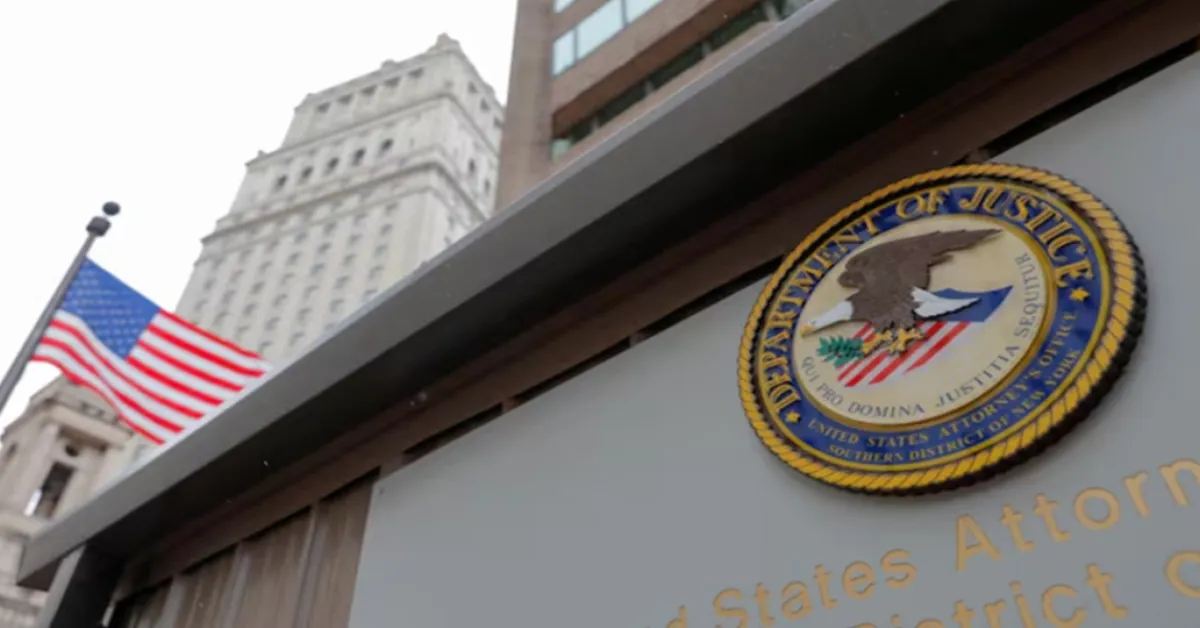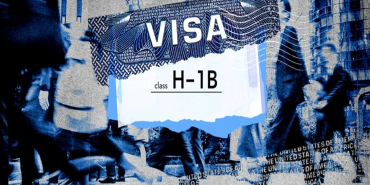10 Red Flags for F-1, H-1B, and Green Card Holders Amid Nationwide Crackdown

The United States is experiencing a significant shift in its immigration landscape as a result of increasingly restrictive policies and enforcement measures.
International students, foreign workers, and green card holders are facing unprecedented challenges as the federal government intensifies its scrutiny of legal residency, visa applications, and existing immigration protocols. The immediate impact of these policy changes is evident in the increased rate of visa denials and revocations. Data from the 2023-24 fiscal year reveals that approximately 41% of F-1 student visa applications were rejected, marking a sharp increase from the 36% denial rate in the previous year.
This escalation reflects a more rigorous vetting process for prospective students, significantly impacting the global educational landscape. Visa revocations have also become more frequent, often occurring without prior notification, which leaves international students vulnerable to deportation or abrupt interruptions in their academic pursuits. Immigration authorities have reportedly removed student records from the Student and Exchange Visitor Information System (SEVIS) without informing universities, placing the burden on students to constantly monitor their legal status.
Another critical concern for international students is the potential termination or restriction of the Optional Practical Training (OPT) program. The OPT program enables students to gain practical work experience in the US for up to three years post-graduation, bridging their academic studies with professional opportunities. The administration has signalled its intent to curtail this program, posing a significant hurdle for students seeking long-term career aspirations in the United States.
The interlinked dynamics between F-1 student visas and H-1B work visas are also exacerbating challenges. Many international students transition from academic pursuits under an F-1 visa to employment via an H-1B visa. However, recent visa cancellations are jeopardizing this pathway, potentially leading to unemployment and forced departure from the country. Businesses that rely on international talent, especially in high-demand fields such as technology and engineering, face disruptions in hiring and retention, with potentially long-term economic consequences.
The administration’s stance is underscored by statements from key figures such as Secretary of State Marco Rubio, who asserts that American visas are a "privilege, not a right." In a Fox News opinion piece, Rubio emphasizes the legal framework guiding visa eligibility, citing the Immigration and Nationality Act (INA) and restrictions that disqualify individuals with affiliations to terrorism or violations of US law, such as overstaying visas or engaging in illegal work. These remarks reflect the administration's broader philosophy of leveraging immigration policy as a tool to ensure national security and maintain lawfulness.
Green card holders are also facing heightened scrutiny, particularly during adjustment-of-status interviews. Immigration officials have intensified questioning to assess the legitimacy of relationships, delving into personal details to ensure genuine intentions. This level of vetting underscores a shift towards more stringent evaluations of individuals seeking permanent residency.
Amendments to visa interview waiver guidelines—commonly referred to as "Dropbox" applications—have also introduced additional complexities for visa renewals. The window for renewing visas without an in-person interview has been reduced from 48 months to 12 months, significantly increasing the number of required interviews. This change disproportionately impacts H-1B visa holders and F-1 students transitioning to work visas, leading to longer wait times and greater uncertainty in visa processing.
Further compounding these challenges is the closure of the Office of the Citizenship and Immigration Services Ombudsman (CIS Ombudsman). Previously instrumental in addressing visa-related issues, the office served as a vital resource for immigrants facing delays or complications in their applications. With the office’s functions effectively halted, green card holders, H-1B workers, and students are left without a critical avenue for redressal.
Foreign nationals, including H-1B workers, green card holders, and students, have been explicitly cautioned about travelling outside the United States. Reports indicate that elderly green card holders who frequently visit their home countries face scrutiny upon re-entry, with some being pressured to relinquish their residency rights voluntarily. US authorities are also closely monitoring the social media activities of visa applicants. Diplomats are scrutinizing applicants’ online behaviour for potential red flags, further heightening concerns about privacy and freedom of expression.
For international students and workers, the challenges extend beyond legal hurdles. The emotional toll of uncertainty, coupled with the disruption of academic and professional plans, has fostered a climate of apprehension. For institutions and businesses that rely on international talent, the policies present economic and cultural implications, threatening the diversity and dynamism that have long characterized the US landscape.














Add new comment